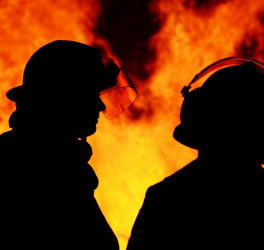
With an increasing intensity and severity of heat waves in the U.S., Rutgers Health researchers, in collaboration with the City University of New York (CUNY), found that older workers, particularly Black, Latino and low-income individuals, face an increased risk of work disability because of exposure to extreme heat.
Their study, published in the journal Generations, explores how heat-sensitive occupations contribute to health-related work limitations among adults aged 50 and older.
Using nationally representative data, the researchers found that workers in outdoor jobs, such as agriculture or construction, or poorly climate-controlled indoor jobs, are more likely to report that health issues limit their ability to work. These occupations are disproportionately held by men, immigrants, and individuals with low socioeconomic status, who are also more likely to have comorbidities, such as obesity or diabetes.
According to the Bureau of Labor Statistics Occupational Requirement Survey, 33% of the civilian workforce have jobs that require outdoor exposure.
“Extreme heat is not just an environmental issue, it’s a health and workforce issue,” said Mara Getz Sheftel, an instructor at the Rutgers Center for State Health Policy at the Institute for Health, Health Care Policy and Aging Research and the lead author of the study. “Our findings show that marginalized populations are more likely to be exposed to heat on the job and to suffer long-term health consequences.”
The study also highlights disparities in access to workplace protections and health care. Workers in informal or temporary jobs, such as delivery drivers or street vendors, often lack employer-sponsored health insurance and may be excluded from heat-related safety regulations.
While some states and cities have implemented local regulations around occupational exposures, the study authors call for stronger federal and local policies to protect workers from extreme heat. Proposed rules from the Occupational Safety and Health Administration would require employers to provide water, rest breaks and heat illness prevention plans, but these regulations have yet to be enacted.
“Without comprehensive protections, we risk leaving behind the workers who are most vulnerable to heat-related health impacts,” said Sheftel, who is also an instructor in the Department of Health, Behavior, Society and Policy at the Rutgers School of Public Health.
The researchers said policymakers should consider preventive measures, such as workplace safeguards and increased access to disability funding and health insurance, as well as vocational training for workers who can no longer perform jobs exposed to heat.
Coauthors of the study include Jennifer Brite of Hunter College and Na Yin and Deborah Balk of Baruch College, who are all faculty at the CUNY Institute for Demographic Research.








